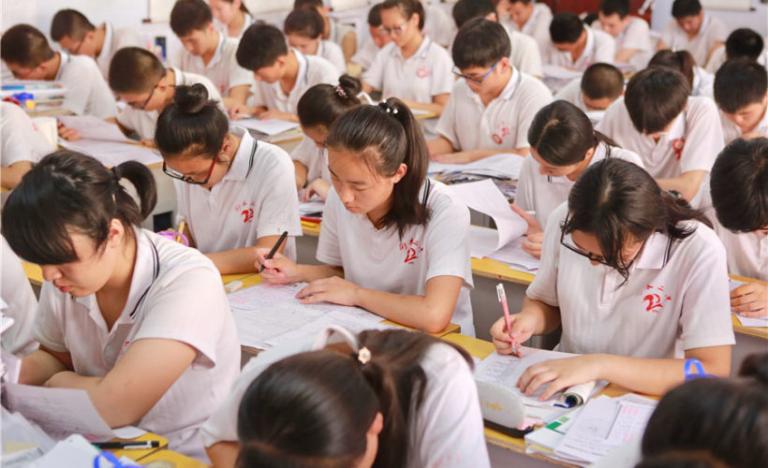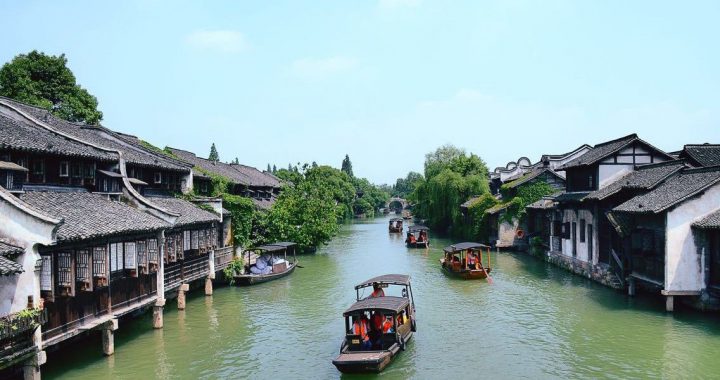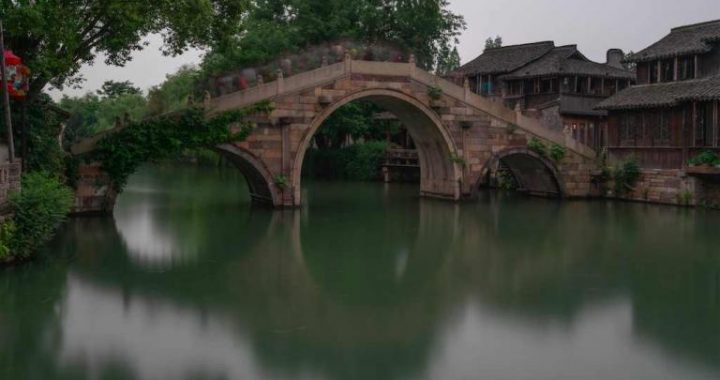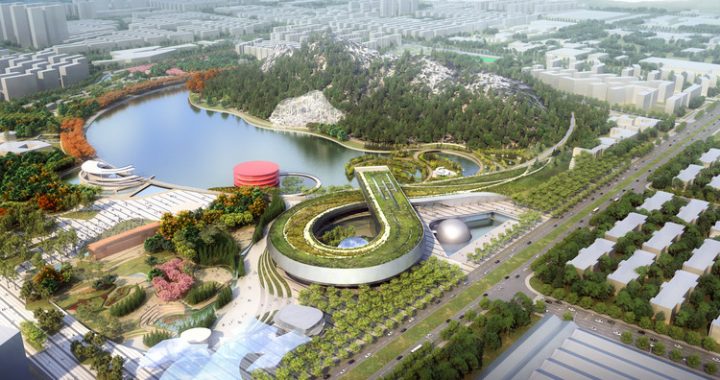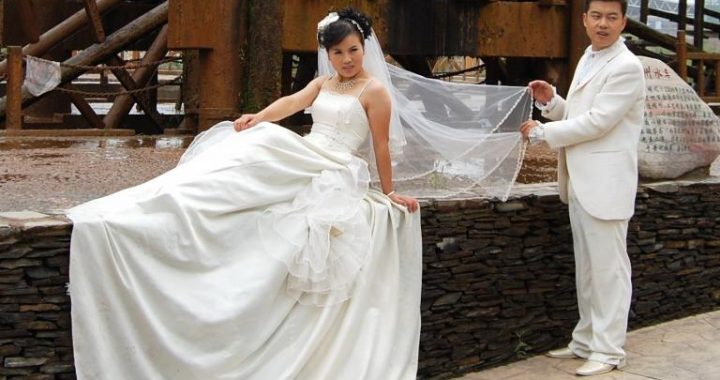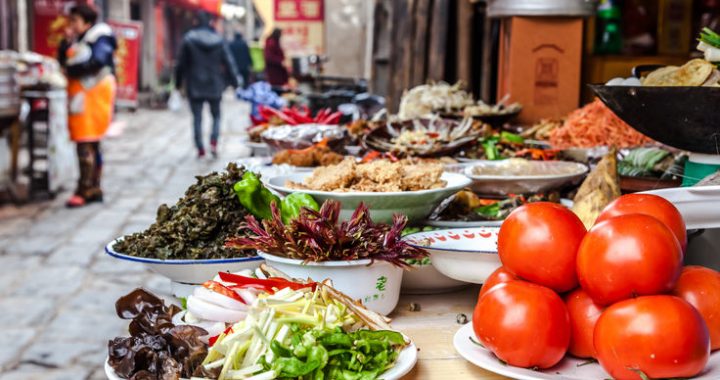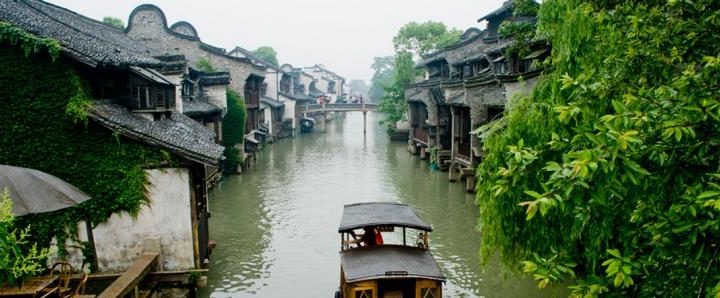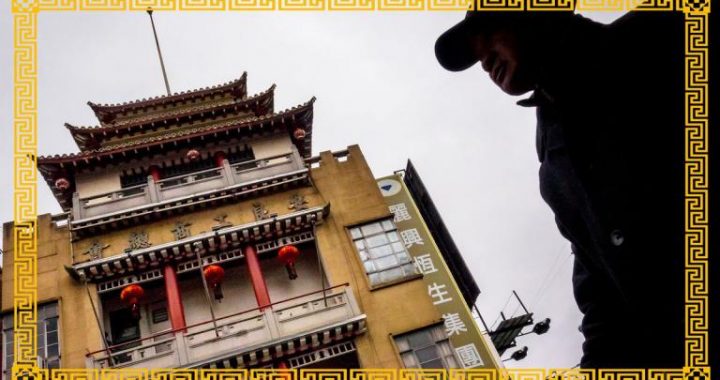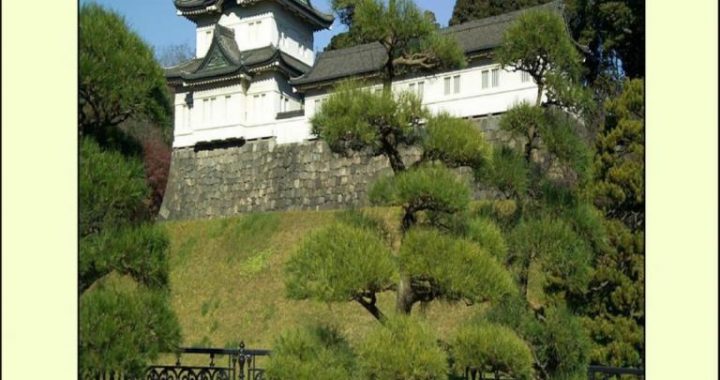Education in China
27 min readExamination success as the determinant of a young person’s life prospects goes back much further in China than in the West. Both the East and the West would now claim to be striving to attain an ever more genuine meritocracy, even if its true attainment remains elusive everywhere. Its quest in England isrelatively recent. The story in China is different. The Keiu system, the Imperial Examinations, offered the chance of a career serving the emperor commensurate to ability. The gruelling intellectual challenge was introduced during the Han dynasty over two thousand years ago. There were substantive developments in the examinations during the Tang dynasty between 600 and 900 and then again three hundred years later during the Song. The exams were finally abolished in1905 by the faltering Qing dynasty as it attempted to solve its many problems through importing blocks of Western culture, including the Western Europeanmodel of university education. Entry into the civil service then came after university by recommendation until the introduction of the Guokao in the1980s. Chinese higher education, decimated in the long sad years following the Japanese invasion of 1937, was not fully modernised until its inclusion in Deng’s Four Modernisations’ of the late 1970s. Education has since played a key role in facilitating economic development.
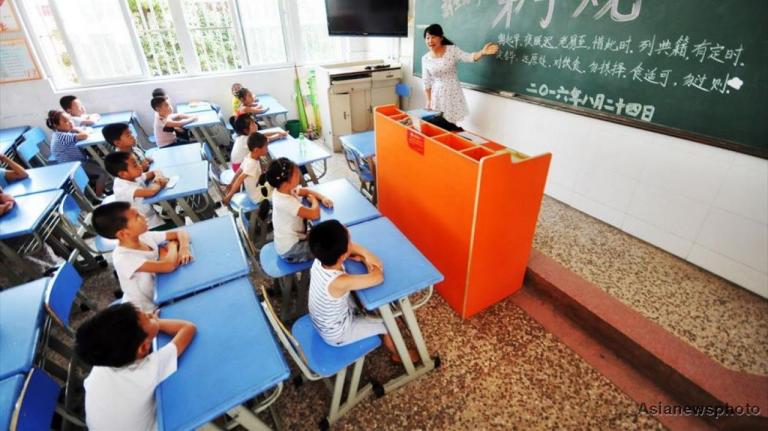
The Guokao is a pale equivalent of the ancient Keju. It was sat by one and a half million people in 2015. They competed for around 25,000 jobs. It secures entry to the Chinese government’s administration as officials, ganbu, but generally offers only a low-paid job to the one in fifty who satisfies the examiner. It almost guarantees life employment, hence the description of suchjobs as being equivalent to an iron rice bowl’; however, not much beyond rice can be afforded on the salaries offered.
During the long era of the ancient Keju’s dominance there were four main levels within the imperial exams before the highest grade court exams could betaken. For the top level examination the candidate arrived at a long terrace of individual examination booths within the Forbidden City itself. He was self-sufficient in terms of food, bedding and toiletries for an exam which lastedtwo nights and three days. He could not leave his small booth. In preparation he would have learnt a minimum of 400,000 characters and lengthy sections of Confucian classics by heart. At its core was the ‘ Eight-Legged Essay’ which comprised an opening, six layers of argument and a conclusion. It required a profound knowledge of the Confucian ‘ Four Books and Five Classics’. The pass rates were miniscule.
The physical demands of the Keju exam offer a connection to an English exam for the elite of Cambridge University, the Wrangler mathematics examination. This English contest at Cambridge with the examiners was also lengthy. It comprised two parts; first came forty-five hours of examination over eight days. The 211 questions answered in this first stage were then followed by the best students confronting another sixty-three over a further three days. It was a test of physical endurance as well as academic ability, just as was the Keju.
Those graduating from the Wrangler exams were also very few,a dozen or so.
There, however, the analogy between Keju and Wrangler ends.
Many of the most successful Cambridge Wrangler examinees remained in academia or joined the Church. Success certainly did not guarantee them the progress towards worldly fame, which was assured for the top Chinese scholars,nearly all of whom entered the bureaucracy. Failure, however, had less personal significance in England than in China. The candidate who came bottom in the Wrangler contest, for example, celebrated his abject failure and, borrowing an expression from an ancient English rural ceremony, was said to have won the Wooden Spoon’. Six-feet wooden spoons were carved and presented in a mock ceremony to the failed candidate. One is still displayed at St John’s College as a treasured relic. The last Wooden Spoon was awarded in 1909; the spirit behind the award endured for far longer.
In another example of cultural differences over the last thirty years the magazine The Idler has flourished in England. It claims the great lexicographer Samuel Johnson as its inspiration; Johnson, although industrious, had a sluggardly love of his bed and rose late. Idleness is celebrated and the ‘ Protestant work ethic’ of Northern Europe decried. Its annual mock-award of ‘ Tdler ofthe Year’ is offered to well-known figures; the 2017 award will probably bepresented to David Cameron who struggles to find a post-premiership role.
These are diverting cultural amusements for the English. They do, however, represent an approach to life in England which could not be found in China. Exam failure in China meant ruined aspirations, dashed dreams, an ignominious return to family and to the home community who had funded their assault on the Chinese examination system. Together with idleness, it could never be celebrated. Class privilege in England meant idleness and consequent academic failure was not, for some at least, the end of the world. In the land where Confucian thought has always dominated, idleness could never be celebrated.
In the Cambridge of the past, since most who attended the university were from privileged backgrounds, failure was often inconsequential. The failed student most probably had family connections through which a career was assured and where lack of success would be cushioned by inherited familywealth. Failure could be treated as an irrelevance. Merit for some in the West was simply not a determinant of worldly success. The idea of celebrating academic failure at the country’s most exclusive academic institution would have been beyond comprehension in China, and perhaps still is to this day.
Nonetheless, this is the social background from which much of early twenty-first-century English society derives. Although David Cameron may win the idling trophy, he in fact achieved the top level degree from Oxford University, even if this achievement was probably of little relevance to his later success.
The philosophy supporting Chinese education has long been different to that of the West. Chinas system has evolved through a mix of Legalism and Confucianism. Legalism at its simplest maintains that morality should be secondary to realism. To that end the state works best with a centralised, sometimes cruel, bureaucracy. People are immoral and selfish. Therefore,a strong army and bureaucracy are required. Qin Shi Huang, the first Chinese emperor, based his rule on this legalistic philosophy. The purpose of education was simply to provide bureaucrats who could pursue this straightforward objective. Education had little intrinsic value. Legalism is similar to the philosophy which the seventeenth-century English philosopher, Thomas Hobbes, encapsulated in his work The Leviathan. He argues in favour of the absolute state. Machiavelli also recommended a somewhat similar pathway through an immoral world. Neither of these European philosophers, however, had much influence on education. Legalism determined that people should be educated only as far as their education benefited the state.
Legalism was established during the Warring States period, the time whenConfucius lived. Education much concerned this great philosopher in both The Analects and The Great Learning. Confucius thought that those who excel in learning should take office. Education of course must benefit the state but it should also assist the individual’s personal development so that he can help others.
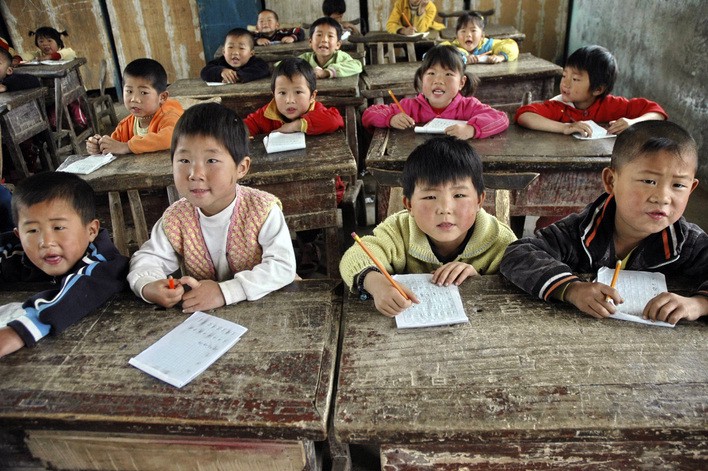
The Keju was based on a mixture of Confucianism and Legalism. Confucius embraced the idea of meritocracy as he argued quite reasonably that intelligence was not restricted to those with the inherited genes of past great people. The importance of literature was stressed in order to promote the social development of the state first. The individual came second.”The Classics’ were preferred by Confucius to practical knowledge. The link between Legalists and Confucians is service to the state. Both philosophies were concerned with education.
England, and indeed the West generally, did not espouse such subservience to the state, even if Plato argued that everything the citizen does should be driven through achieving a greater good for all. Aristotle in On Education had greater influence. He argued for a mix of practical and theoretical instruction coupled with the principle that the educated person was a fulfilled person. In the individualistic West, education was a philosophy for life rather than basedon service to the state. Hence Aristotle balanced intellectual development with physical training, music and debate within a broad curriculum.
Into the Western educational background of England came the nineteenth century schoolmaster Thomas Arnold. He established a very different approacheducational philosophy to that of China. In the West education was a private concern. What mattered most at a private school like Eton, Rugby or Oundle was first that a young man should absorb the Christian faith. Secondly he should behave like a gentleman. Academic achievement as a priority claimed only third place. It was not the prime concern of English education.
Furthermore, the personal qualities of the individual were more relevant to himself than they were to the state. There should be no value judgement attached to these past approaches of either culture. Each contained advantages and each at times fell far below its own ideals.
Since the beginning of the first millennium the most common means for ordinary Englishmen to rise in society was through the Christian priesthood.
Qualification as a priest came through attendance at seminaries or at either Oxford or Cambridge Universities, England’s only universities until the 1830s.
For many centuries the majority of graduates became priests and universityteachers had to be priests. They were, however, often political, and sometimes even military, figures. This background is reflected by the twenty-six Anglican Christian bishops who still retain seats in the upper chamber of the English parliament, the House of Lords.
The requirements for university teachers to be priests had one bizarre outcome. Whilst England remained a Catholic country its Christian priests could not marry, but as Protestants from the mid-1500s they could take a wife.
However, the two universities imposed marriage restriction on its exclusively male academic staff until the late-1800s. Hence England denied children to its cleverest people, doubtless to the great detriment of the national gene pool. The Chinese managed matters more sensibly; the cleverest contestants in the Keju were often invited to marry a spare royal princess.
Even when an emperor was a devout Buddhist or Taoist, China was a secular society. Religions were tolerated by Chinese non-believers through both intellectual curiosiry and respect in a manner which should have shamed the West. The moral structure to an individual’s life which religious faithencouraged appealed to the mind trained in Confucian thought. It also often appealed to the state. Nonetheless, the instant a religion threatened to interfere with imperial government in China, it was destroyed. Of course the English state took exactly this stance. In the West the political relevance of the Church, Pope John Paul’s exceptional impact on the disintegration of the Soviet empire aside, has disappeared.
In the sixteenth century England’s meritocratic openings expanded through the opportunities provided by its two universities. William Cecil became England’s leading administrator from 1558. He was the grandson of a country innkeeper. Such advance, whilst not unique, remained exceptional.
England continued with a society much less open to the less privileged classes than the Chinese society. Indeed it took until the 1850s for the dangers of such a sclerotic system to appear intolerable. In consequence the civil service andthen both England’s universities were radically changed through the Northcote Trevelyan Reforms of 1854. Entry, promotion and career prospects were henceforth to be through talent identified by examination. The two men in charge of the review of the British civil service and its universities had turned to China for inspiration as to how a meritocratic government should be run. They studied the Keju system. Matteo Ricci, Voltaire and the consumption of tea, silk and porcelain aside, it is the earliest significant example of Chinese cultural influence on England. The ancient concept in China of a meritocracy was a radically new approach in the England of the 1800s.
In theory the Keju exams in China, and access to Cambridge University, was open to everyone, provided the applicant was male and accepted the regime’s beliefs. In practice success required a degree of wealth. In China the requirement to pay a teacher and have time to study meant most poor rural families were excluded. This problem persists into the twenty-first century.
The percentage of students from rural communities at Peking University, oneof Chinas top two universities, is presently ten per cent, although half the population still live in the country. The comparative figure denoting those from rural backgrounds in the mid-1990s was thirty per cent. This is a remarkable regression, even if there were more living in the country at that time. However, there have always been possibilities in both countries for the outstanding child to overcome their exclusion from education which normally flowed from poverty. For example in past centuries members of a village community might fund the education of an exceptionally bright young boy whose examination success would bring success to the community. Similarly Cambridge University had connections with many small distant rural communities through the local Christian priest. The priest might quite likely be a Cambridge graduate since there were intimate links between the two English universities and the established Church. He could identify a precocious child and recommend him to a college at Cambridge University. Endowments held at the college could then fund the poor scholar. Nonetheless, even with a supportive priest, the chances of the very poorest reaching university were slim.
Well into the sixteenth century the aristocrats’ nurture of the muscles in theirsword arm rather than the synapses of their brain was a surer route to success.
In contrast the well-educated literati in China were nearly always revered.
This is reflected in their hierarchy of social classes; China’s scholars, then bureaucrats, were at society’s apex, followed by farmers and artisans; at thebottom came soldiers and businessmen. For many centuries soldiers were near the apex of Western societies, even if derision of businessmen was shared by both the English and the Chinese. In the mid-1900s English stockbrokers and those involved with’ trade’ were social pariahs in the highest social circles. Nowstockbrokers’ gross over-remuneration in the city of London buttresses a higher social standing and their business pursuit is apparently respected.
Unlike in China, literati and academics in English society were denied social prestige. The Scottish Stuart king of the early 1600s, for example, considered extending political representation to Oxford and Cambridge Universities. This would have matched the privilege already held by the four Scottish universities. However, there was strong opposition from the English upper clases. The Cambridge literati were described as being little better than retained servants since they received free food and accommodation from the head of their college. Despite this measure of their unworthiness, which musthave hurt the ever self-regarding Cambridge academics, the universities were able to elect their own political representatives.A similar discussion about the social unworthiness of Chinese academics is impossible to imagine.
In China the Keju, however imperfectly, did provide a springboard for success. Through success in the exam an impoverished man, though not of course a woman possessing any amount of wealth, could reach out and claim the highest positions in the empire’s bureaucracy. There are recorded examplesof the poorest people breaking into the Mandarin hierarchy. This was sometimes posible through the entire village raising funds to support an outstanding but poor scholar. Success brought prestige and practical benefits to a community.
Individual success in the Keju was shared with fellow citizens. The leader of the Taiping Rebellion, Hong Xiuquan, was such a beneficiary of this communal support in the 1840s. Considered very intelligent and raised near Guangzhou within a poor family, his village paid the costs of his education. His failure, and loss of face at home, prompted him to become a wandering scholar. This was the period when he developed the deranged ideas which would ferment rebellion and cause so much damage to the places of education in Wuzhen.
Help provided from the wider community demonstrates the importance of the extended connections’, the guanxi, in China. It is doubtful whether Stamford, the English hometown of William Cecil, benefited in any way from their son’s worldly success. His own close family certainly did; they remain part of England’s aristocracy in the twenty-first century. England simply does notpractise the Chinese concept of loyalty within a broad social circle. When anAmerican or English politician supports their home region it is usually only done to secure political support, hence the nineteenth-century American term pork barrel politics’. In another modern example from England the four pop stars, the Beatles, did very little for their home city of Liverpool. The label China applies to the West of ‘ individualistic’ with a community vision’ which does not reach beyond the ‘ nuclear family’ appears justified.
Naturally over its 2,000-year life the Keju did not always work well, particularly in the dying stages of a dynasty. Although the civil service comprised intelligent people who were tough enough to pass the exams, in thenineteenth century a large number of poorly paid civil servants were openly corrupt. During the reign of Emperor Daoguang from 1821 to 1850 the priceof promotion within the bureaucracy was well known;1,000 taels of silver would purchase advancement from the ninth grade of the civil service to the eighth, with 2,000 taels securing the next upward step. Praise of any system of government should be tempered with the knowledge that on occasion they fell short of its ideals.
Indeed it is evident in modern times that both China and England still fall far short of the meritocratic ideal. In the twenty-first century over forty per cent of Cambridge undergraduates come from the seven per cent educated in expensive private schools (but it was over fifty per cent a generation earlier). Colleges of Cambridge now maintain links to schools in poor areas of the country in order to encourage the poor and bright to reach up to this outstanding university. In effect the colleges are behaving just as their forebears did several hundred years earlier when they relied on contacts with village priests in distant small communities to uncover the indigent but inteligent. The twenty-first-century structure of education still does not ensure this happens automatically in England. The elite Chinese universities face precisely the same challenges. These universities are discussing lowering the scores required in the Gaokao exam, taken aged eighteen, for students from poor backgrounds. Similar discussions take place in England.
Imperfect though it may have been, the Keiu served as a more effective means of self-fulfilment for the brightest than anything available in the West.
It also began many centuries before the West developed any similar means of putting the best brains at the service of the state. The state clearly benefitted, while the individuals could be personally fulfilled and had the chance for enrichment. The culture of the Keju reached everywhere in China’s society and certainly into the Wuzhen community.
The first record of education within Wuzhen came through the sage and poet Shen Yue who lived between 441 and 515 during the Southern Dynasty.
He was born in Huzhou but lived fifty kilometres away in Wuzhen. The Crown Prince Zhaoming, also known as Xiao Tong, came each year to study under Shen Yue in Wuzhen before his premature death aged thirty. The townsfolk would have been aware of the importance their social superiors attached to.
The Zhaoming Academy, with its formidable Ming-dynasty entry arch, provided a touching point to education and the literati who studied there.
It was in the academy that the prince and Shen Yue compiled the Wenxuan, which remains a major source of Chinese literature. After the prince’s death the academy may not have served any further significant pedagogic purpose but the memory of the prince and Shen Yue survived. It was converted into the Miyin Temple in the sixth century and rebuilt many times since then.
It has regained life most recently as the restored Zhaoming Academy in part of the town’s recent redevelopment. It now serves as a library, containing books of the winners of the biennial Mao Dun Literature Prize and has a fine garden with several ponds. Water is associated with scholarship and wisdom. Thus most Chinese universities have large lakes at the centre of their landscaped campuses which, according to Taoist thought, will engender intelligence and wisdom.
Only rarely has an English university campus been crafted around lakes in the Chinese manner. The ancient rivers which wind naturally through Oxford and Cambridge will have great appeal to the Chinese guest. The focus on water at this Wuzhen school is a typical Chinese characteristic.
Wuzhen also nurtured the Lizhi Academy in Guanqian Street built by the retired government official Yan Chen in the late nineteenth century. Not far from the site lies Lingshui /u, the retirement home of another successful imperial scholar, Tang Long, who died in 1546; he was from Shanxi but chose to retire to the town of Wuzhen. He had titles from the late Ming government which place him near the top of the bureaucratic tree. One of his delightful imperial titles was’ Grand Master for Splendid Happiness, but more practically he was also head of the Ministry of Personnel and Censor-in-Chief. Tang Long’s successful career had begun through success in examinations. All people of Wuzhen would have been aware of how and why he had been so successful. They would fervently have hoped that one of their Wuzhen children would be as clever.
Imperial Examinations, the Keju, must have been talked about in Wuzhen.
Everyone would have recognised the benefits to the community from identifying a particularly clever child. The occasional success of local men and the eminent bureaucrats who chose to retire to the town would have made the benefits self-evident. Whether or not this route to temporal success was in practice open to all, the Keju did unify society through the belief it fostered that Chinese society and individual success were driven by merit. There was nothing remotely similar in Western societies.
In the 1850s Yan Chen first called his college the Fenshui Academy, but after its destruction by the Taiping rebels its name was changed to Lizhi Academy. Yan Chen’s worldly fame was achieved through success in the Imperial Examinations: he became the Governor of Police in Beijing and Hangzhou.
Evidently a decent man he established the college to spread the pearls of learning’ to those less fortunate than himself. He was its headmaster for the last twenty years of his life and also founded another school. Yan created small artificial mountains from Taihu stones and diverted water into the garden. The garden was typical of the association between learning and gardening as well as the desire of retired successful men to entwine the remainder of their lives with nature. The garden was destroyed as well when Taiping rebels used the area to store provisions. Yan oversaw its rebuilding after the rebellion. Mao Dun’s home was directly alongside the Lizhi Academy and spent his first days of schooling there in the early 1900s. The Lizhi Academy, fully restored in 2006, now contains memorials to the writers Mao Dun and Kong Lingjing as well as to the Communist revolutionaries Shen Zemin and Wang Huiwu.
The schools of Wuzhen town itself have now migrated to the county-level city of Tongxiang alongside Wuzhen. It is a small community, by Chinese standards, of 800,000. It has the range of schools which take the Chinese child through to adulthood. Nursery schools from four to six, followed by primary up to twelve, then middle school between twelve and fifteen, and finally high school until eighteen. There are seven Middle and six High schools. Attendance at schools for the people of Wuzhen is determined by living within the schools’catchment area. However, if the local state school is thought weak, those with money will seek entrance in another public, or possibly private, school.
One characteristic of Wuzhen-Tongxiang schools is class size. Fifty or sixty to one class teacher at Lower Secondary will be common, against an English state school standard of around thirty. The English private schools would average twenty. The implications are obvious. Stressed teachers, excessive homework for teachers, impossibility of accommodating individualistic pupils or of nurturingthe academically slower child and the requirement for strict class discipline. This environment cannot be the best to encourage creativity, originality or any culture of challenging authority. It leaves the university teachers with the need to create such characteristics when the students go to universities.
The 2015 BBC programmes, which filmed four Chinese teachers at an English school in a relatively privileged part of south England, exposed the indiscipline of the English pupils. The four Chinese teachers were outstanding, although little praise can be extended to the pupils or English headmaster. The Chinese mathematics teacher, Simon Zou, now a headmaster at a private schoolnear Hangzhou, decently claimed the cameramen exaggerated matters to create more viewable television. This may be true. However, the programme revealed in England how the opportunity for a child to develop intellectual independence can slide into indiscipline. The typical child of Wuzhen will always have been more disciplined while growing up by parent, grandparent or uncle than ever was its equivalent at Cambridge University.
The programme highlighted some of the basic differences between Chinese and English education. The Wuzhen children get out of bed earlier than those of Cambridge and spend longer at school, usually from seven in the morning for twelve hours in the teenage years. They feel the competition more keenlyand absorb the consequences of failure more deeply. The Wuzhen child will be more familiar with working in teams and do note-taking during class,a good preparation for university. In the West the child will challenge both teacher and parent more readily, will expect and receive more individual attention and be able to pursue their own interests. The benefits of each are clear; the calmer, more disciplined, better behaved but possibly overworked Chinese child with comparatively huge mathematical skill, balanced against the greater creativity of the wayward, slightly lazy, numerically challenged English child with greater verbal skills whose creativity has been nourished. Certainly the strength of Chinas achievements in patents and ground-breaking research is not presently proportionate to it size, nor indeed to its desires. Neither the Wuzhen nor the Cambridge experience is necessarily superior to the other, but certainly an understanding of the one by the other can only help educators in both places.
Both China and England face huge educational challenges.
Chinese schoolchildren excel at tests. Those who started the Keiu 2,000years ago would hardly be surprised. In the PISA world tests, schools in Shanghai, not far from Wuzhen, come top of the world rankings in the manner which the universities of Cambridge and Oxford regularly triumph over their peer group. Yet increasing numbers in Chinese academia now decry the emphasis on tests in education: they have become the phantom stalking Chinese education,a spectre which drains the lifeblood of young scholars through an unrelenting focus on learning to an exam schedule.
As in China, testing is an increasingly dominant feature of Western education. Indeed there are a growing number of similarities between thesetwo systems of education. For example, acquiring places at the best Chinese schools is not such a different experience to that of the West. Places at each can be bought. In 2106 homes near the best schools in England on average cost an extra £19,000, or £39,000 in London. However, the Chinese also endure this cause of house inflation. It amounts to selection to the best schools, andsubsequent access to the best career opportunities, by parents’ wealth whether through bribe or by house value in both countries. Teach First, an English teaching organisation, estimates that forty three per cent of pupils at the best English state schools are from the wealthiest twenty per cent of the population.
As is so often clear after a little observation, England and China share many problems and aspirations.
In addition to these privileges which wealth can buy at the best state schools, England also maintains a robust private school sector, increasingly supported as it so happens by Chinese children. Rich Chinese are generally content for their children to be educated in English schools. It is a safe country with a good scholastic tradition which offers appropriate discipline. However, at the university level the Chinese prefer to attend an American university where there is likely to be more funding available for research and probably more good graduate jobs. The cutting edge of American social life also appeals to the student.
One ancient characteristic which remains within Chinese education is the dependence on memory. From the earliest age Chinese children must commit to memory all manner of academic subjects, particularly poems. Walking through the campus of any modern Chinese university at the time of exams many students can be observed in isolation reciting their work in preparation beneath a Scholar Tree(the Sopbora sinensis, known as the ghost tree in some parts of China, and often seen on Chinese campuses; Clare College Cambridge also has a particularly beautiful specimen). The well-aired critique of learning by rote is that it squeezes the juices of creativity, even if this is compensated to some extent by a massive lead over Western children in mathematics. Chinese children outshine their Western peers in all manner of tests. They enjoy the West’s admiration. Whether basking in the praise of overseas admirers prevents the Chinese addressing the weaknesses of their system is, however,a question worth raising.
Besides the emphasis on memory there is another difference to the West.
It is the pressure applied to the child by both parents and schools. In one sense this is the inevitable outcome of a meritocracy. If every townsmen of Wuzhen or Cambridge believes their child could become the emperor’s chancellor then there is every reason to apply pressure. In a society where class rigidity meant the blacksmith’s son had little option but to follow his father’s profession, there was likely to be less pressure, and possibly less unhappiness. The late-nineteenth-century author Thomas Hardy, himself from a socially modest background, knew directly of the limitations imposed on clever but poor children in England. In his novel /ude the Obscure, Jude comes from a poor family. He is indeed obscure, yet he reads classical literature, teaches himself Latin, Greek and much more besides in order to secure an education at Oxford University. He fails even to secure an interview. His naivety in thinking he could clamber overthe class barriers of that period is touching, and heart-rending. England was far further from rewarding merit than was China.
Until social mobility was more widely possible in England, there was certainly less pressure. For many English university graduates, exam success was simply not correlated to success in subsequent careers. It is possible to list, from only twenty years ago, many Englishmen with successful careers who graduated from Oxford or Cambridge with the lowest degree, known as a third class degree. The list can be drawn up because such graduates happily drew attention to their academic underachievement. Only in England could a third class degree carry the label of A Gentleman’s Degree’. This implied that their social privilege, which was the gentleman’s birthright, was such that academic success was an irrelevance. Together with celebrating coming last in the Wrangler exams, such jocular references about academic failure are impossible to imagine in China. The Gentleman’s Degree sobriquet had died out by the end of the twentieth century. Indeed the pressure on students, and their close monitoring by university academics, is now such that a degree of cleverness would be required to survive three years at Cambridge University and emerge with a third class degree. In 1960, thirty per cent of Cambridge graduates received third class degrees; in 2016 less than five per cent did so. Performance is constantly monitored and such low-achieving undergraduates would probably be squeezed out. In the place of this privileged and enjoyable if indefensible gentleman’ slifestyle huge presure is now applied to the students of Cambridge and Oxford to succeed’, whatever the transient definition of success may be in the twenty-first century.
Modern Chinese tend to argue that the pressure on their children is theinevitable outcome of China being such a populous nation. They should be reassured, or concerned, to learn that without a similar population England is emulating their example. The ratio of good jobs to people is small everywhere, not just in Chinals civil service after the Guokao. The Chinese are always very aware that one consequence of being a populous nation is pressure on their child. Certainly it is common for well-educated, decent, young Chinese parents to worry that their child, perhaps at such a young age as seven or eight, is having to work too hard. The system which excels at prodding outstanding school scholars to work so hard can also make a child unhappy and unhealthy.
The pressures continue through to the end of high school. Parents, typically themother, will curtail her own work and social life to help her child return vast amounts of monitored homework to the teacher.
One outcome of such pressure when the child reaches university can be their withdrawal from academic life. After working so hard for so long, suddenly there is far less pressure; neither parents nor teachers are insisting that work be completed. Some retreat to computer gaming. After years of pressure from helicoptering parents such reaction is understandable. Retreating from universitylife is perhaps the major disciplinary issue in Chinese academia. To mention that at the colleges of Cambridge University the major problem is students’ excess consumption of alcohol is met with incomprehension by Chinese university staff.
Of the many shared issues facing education in both China and England, the most troubling is the exclusion of the less privileged. Early childhood education, that is pre-school, reaches only a third of all Chinese rural children although the state has set the target at seventy-five per cent. In urban areas it is practically universal. The wealthy know how to move their home registration, the bukou, to Beijing where the schools are generally outstanding. The best universities are to be found in Beijing and on the east coast. The Gaokao exams are generally set by teachers from the best schools in these regions, which means that pupils from these places are probably better prepared. Parents from higher socio-economic groups involved themselves more in their children’s education.
In the East and the West there is a huge achievement gap between those from more and less privileged backgrounds. Everywhere educated ability may trump innate ability.
Despite the divergent historical path, English and Chinese educational policies are converging. Each seeks an educational system which supports a meritocratic society. Neither has yet conquered this challenge. The passing of privilege from one generation to the next is near impossible to eradicate in any human society. In the West every politician decries inherited privilege, none more loudly than those on the Left. It is then those very same left-leaning politicians who buy privilege for their own children through attending private schools or the top-rated state schools, and who then very often in England follow their parents as elected politicians. The success of Red Princes in both England and China is striking. It reveals the depth of the difficulty each society faces in ensuring the best in the country reach Oxford, Cambridge, Zhejiang, Peking or Tsinghua Universities.
Zhejiang University is the nearest outstanding university to Wuzhen and Tongxiang. This leading university is only accessible with some of the highest Gaokao scores. It will attract any outstanding scholar from the Wuzhen community whose scores are high enough. The long journey of the Wuzhen scholar up the Grand Canal to a distant imperial capital has been replaced by an hour’s bus ride south to Hangzhou. Zhejiang belongs to China’s ‘ Project 985university group, equivalent to the twenty-four university members of the English Russell League. The 985 group is closed to new members; the Russell Group remains open. There are now thirty-nine top Chinese universities in the group receiving additional funding, particularly for research in which world-class status’ is sought. Another initiative, the so-called Project 211, covers a further 117second-tier’ institutes of higher education.
There are obviously other excellent universities locally outside these two groups, such as Shaoxing University, Hangzhou Normal University and Zhejiang Gongshang University, all near to Wuzhen. The Normal, as in Hangzhou Normal, in China denotes teacher training and derives from the French Ecole Normale Superior, conceived during the French Revolution to provide new, and more politically reliable, professors. It touches on the considerable foreign influence Chinese universities have absorbed in the last 120 years. Blame for some of the immense pain and humiliations of the nineteenth century was attributed to an education system that had failed the country. This in itself reveals how centrally within its culture China positions education. It took the best it could find from Germany, France, England and then in the 1950s from Russia to absorb into its own educational culture. In England mayors of rural English towns, usually a non-political post without power, keenly seek out international partners with whom to exchange jolly and generally meaningless visits. In China it is every university that seeks out serious academic partnerships with other universities. Theirs has long been a system ready to embrace international influence. One of the latest cooperations to be announced is between Peking University and Jesus College of Cambridge University. Certainly there will have been enthusiasm on both sides, but it is reasonable to suppose that a little more eagerness comes from this top Chinese university than from Cambridge.
The university nearest to Wuzhen is Zhejiang University of Media and Communications(Tongxiang campus). It was founded in 1984 and has around10,000 students. It is ranked 169 in China,2,976 in the world; by way of comparison Liverpool John Moores University is ranked around 2,000. Like other Chinese universities it seeks international links; so far it proudly displays links to a Canadian university. Wuzhen has long been a place with international links, so it provides some historical links.
Certainly the best students of Wuzhen and Tongxiang will choose a higher-ranked university, but these middle-ranking universities in China are improving. As in Britain they develop a speciality, which in the case of Tongxiang is media. It has a film school. Media Studies are as popular in China as they are in England, and primarily for the same reason. They only require modest achievement in exams. However, the relative ease of achieving a high grade degree combined with their limited help in finding a post-university job suggests their popularity will not endure in either country. Tuition fees at a public Chinese university are typically £600 a year plus cheap accommodation expenses, possibly as little as £125 per annum as a further expense. English academic fees are around £9,000 pa before higher living costs are considered. In simple terms a university education in China costs five times less than in England. But proper cost comparisons are complex. Costs vary according to exchange rates and require an awareness of the average salaries; in 2015 the Shanghai average salary was £8,500. The average Manchester salary was £29,000.
The costs in both countries are certainly sufficient to prevent students treating university like the three-year holiday some of the English parents were able to do forty years earlier. The debt most students incur to finance university has also had an immensely dampening effect on student indiscipline. The costs of beingsent down from university with debt, at a time when graduates jobs are not as available as they were a generation ago, are high.
Both the East and the West face problems in education; each is far from perfect. Their imperfections are at least now acknowledged whereas in earlier centuries this would not have been the case. There is a willingness to learn from other cultures which manage different aspects of education more intelligently.
The Wuzhen child always had a greater chance of escaping the drudgery of village than did their English equivalent in Cambridge or Stamford. The cleverest in each society can, as always, break through, although the buying of privilege by parents of less talented children can too easily knock to one side those who are cleverer but not quite the cleverest.
